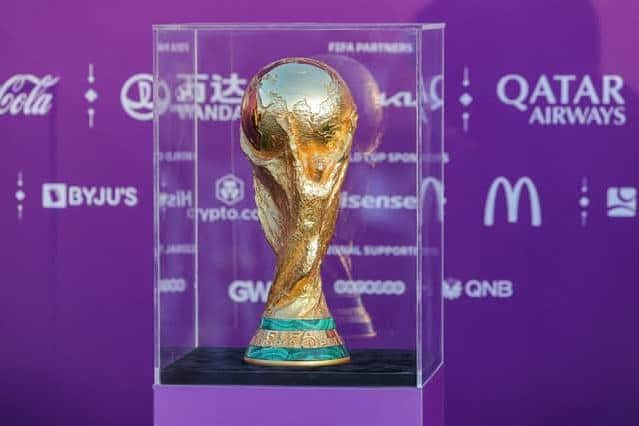World Cup: What Is 'Disgrace Of Gijon'? What made FIFA change rules for final group-stage matches?
From Tuesday, matches in the same group - in the final round of games - kicked off at the same time instead of at different times. The decision was taken by FIFA after a hugely controversial incident at the 1982 World Cup in Spain.Why did FIFA decide to change match timings after 1982?
The 'Disgrace of Gijon' incident - involving West Germany vs Austria at the El Molinon Stadium - was played June 25, 1982.
Advertisement
Hide AdAdvertisement
Hide AdAlgeria had become the first-ever African team to win two matches at a World Cup.


Their stunning 2-1 win in their opener against the Germans also saw them become the first African or Arab team to defeat a European team at the World Cup
Algeria then went on to lose 2-0 to Austria before beating Chile 3–2 in their final match.
That result against Chile made the qualification scenario clear for both European teams.
Advertisement
Hide AdAdvertisement
Hide AdWest Germany needed to win the match by three or more goals to qualify for the next round along with Algeria.
An Austria win or even a draw would have ensured Algeria's progress to the next round.
The third scenario was that a win by either one or two goals for West Germany would have seen them through to the next round along with Austria.
West Germany scored an opener after ten minutes, courtesy of Horst Hrubesch.
Advertisement
Hide AdAdvertisement
Hide AdAfter that, the game ended as a meaningful contest with both sides making no attempt to add further goals and barely crossing the half-way line as Jupp Derwall's side won 1-0.
This performance was widely deplored by all observers. West German ARD commentator Eberhard Stanjek at one point refused to commentate on the game any longer.
Austrian commentator Robert Seeger bemoaned the spectacle, and asked viewers to turn off their television sets. George Vecsey, a New York Times journalist, stated that the teams "seemed to work in concert".
West Germany, Austria and Algeria all finished on four points each but the Germans and the Austrians went through to the next round on the basis of goal difference.
Advertisement
Hide AdAdvertisement
Hide AdWest Germany had a goal difference of +3, Austria of +2 and Algeria had a goal difference of 0 and were knocked out.What happened after?Spectators of the match accused both teams of fixing the outcome, although FIFA ruled that neither team had broken any rules.
As a result of this, and similar events at the previous World Cup in Argentina – including when Argentina beat Peru 6-0 to deny rivals Brazil a finals place - FIFA revised the group system for future tournaments, so that the final two games in each group would be played simultaneously.In German, the match is known as Nichtangriffspakt von Gijón - "Non-aggression pact of Gijón" - or Schande von Gijón - "Disgrace of Gijón", while in Algeria it is called the "Scandal of Gijón."